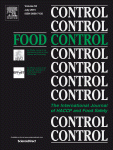Research
ISO 22000 certified dairy companies significantly outperform the non-certified (2015)
The purpose of the study is to determine the differences between the ISO 22000 certified and noncertified dairy companies with regard to the Hazard Analysis Critical Control Points (HACCP) Food Safety System (FSS) effectiveness. The HACCP FSS effectiveness is defined in this present study as the degree of the achievement of the system objectives (identification, assessment and the control of food borne safety hazards). A research study was carried out in 74 Greek dairy companies using a structured questionnaire.
The study demonstrates ISO 22000 certified dairy companies significantly outperform the non-certified with regard to the HACCP FSS effectiveness. Therefore, managers of dairy SMEs taking advantage of the structured organisation and the documented procedures provided by the ISO 22000 standard can increase the level of achieving the objectives of the HACCP FSS, in other words HACCP effectiveness. In doing so, dairy SMEs can set the foundations to optimise the conditions under which safe food is provided, minimise the possibility of food non-conformities and scandals, increase market share and consequently withstand downturn.
Overall the paper identifies that by implementing the HACCP FSS and by being ISO 22000 certified, the level of the achievement of the HACCP objectives is improved significantly.
Authors
Psomas, L.E., Kafetzopoulos, P.D. (2015), ‘HACCP effectiveness between ISO 22000 certified and non-certified dairy companies’, Food Control, Vol. 53.






